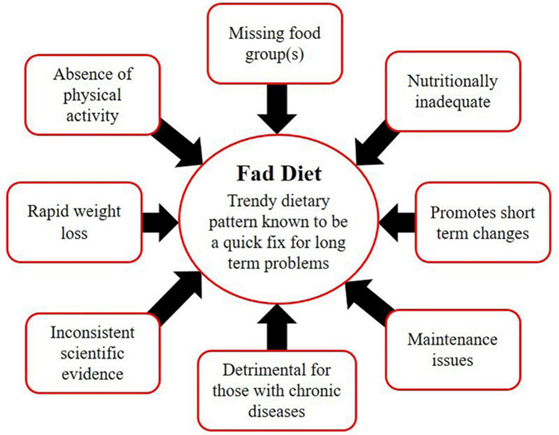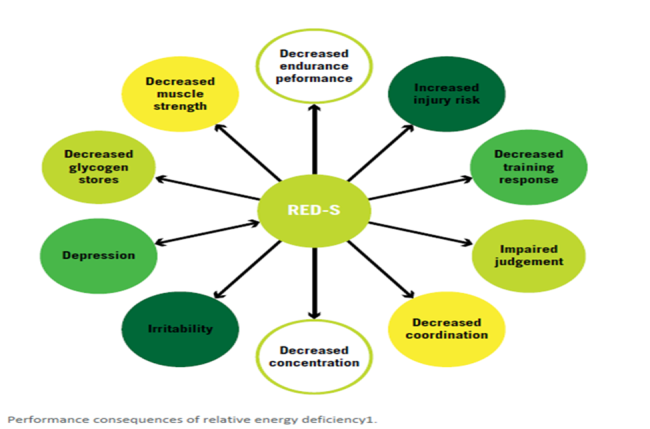Fad Diet? No Thank You!
By: Shania Rayford, B.S., CGEI.
Have you ever heard of the 80/20 rule? What that means is, if your goal is to lose weight, it takes 20% of what you do in the gym and 80% of what you consume in your diet. There are many factors that affect weight loss: genetics, sleep, stress, environment, etc. However, your nutrition plays a major role with weight loss and overall health.
With diet having such a larger effect on weight loss, it has become a trend for people to promote and participate in special diets geared to promoting rapid weight loss. Prior to earning my Exercise science degree with a Nutrition for Human Performance certificate, I used to try plans like the military diet, lemonade diet, slim fast, and Arbonne programs. Now that I am educated in these areas, I realize that those diets that I was participating in were fad diets.
What is a Fad Diet?
https://www.ncbi.nlm.nih.gov/pmc/articles/PMC9294402/
Along with the diets mentioned earlier, some other examples of fad diets include the keto diet, Atkins Diet, and water/fruit diet. The problem with fad diets is that although you may quickly drop a few pounds, you’ll quickly gain it back once you resume your regular diet. The weight loss is usually water weight and not fat, making fad diets only a temporary quick fix and not a long-standing change. Unfortunately, people in the business know this and capitalize off others’ ignorance to how the human body really responds to stimuli.
Fad Diets & Exercise
The human body must be fueled properly to function and exert the energy needed when performing exercise. And after exercise, you must replenish what was lost by eating the right amounts of each food group. Fad diets mixed with exercise could lead to low energy availability (EA). EA is defined as the difference between Energy output from exercise and the energy consumed in the food we eat. So, when individuals participate in diets like keto, where you are being deprived of carbohydrates, they are putting themselves at risk for low EA. It is important to consume enough carbohydrates daily because carbs are stored in the muscle and used for energy during physical activity. If someone deprives themselves of carbs long enough to where the muscle no longer has any storage left, then the body will begin to utilize protein for energy. Proteins are used in the body for synthesis and regeneration of new tissue. So, if the proteins are having to create energy to make up for the carbohydrate deficiency, it will struggle to also perform its own true functions, leading down the rabbit hole of other health issues. Check out this graph from a Nutrition course that I took taught by Dr. David Thomas showing the negative effects of Relative Energy Deficiency in Sport (RED-S).
Mountjoy M, et al. Br J Sports Med 2014
All in all, I hope by now you would agree that it is time for fad diets to go out of style. The real quick fix that everyone is looking for is called discipline and consistency. Obtaining healthy eating patterns and performing exercise frequently is the best way to see long-standing results. If you are interested in learning more about healthy eating, read this article put out by the Dietary Guidelines for Americans. Also, as an UK employee you have free access to the EatWell program, where you can work with registered dietitians to improve your eating habits.

